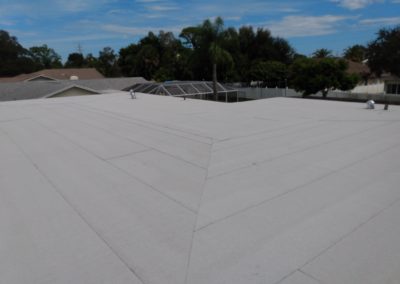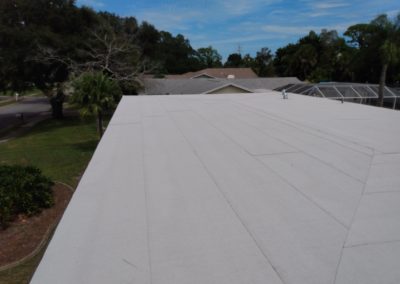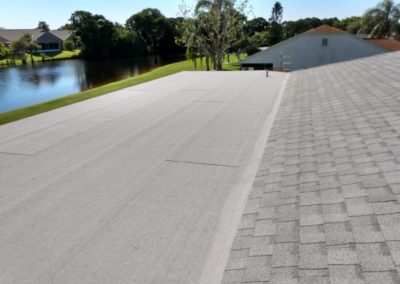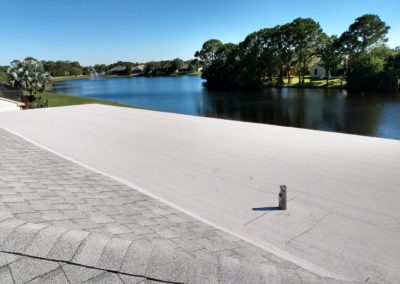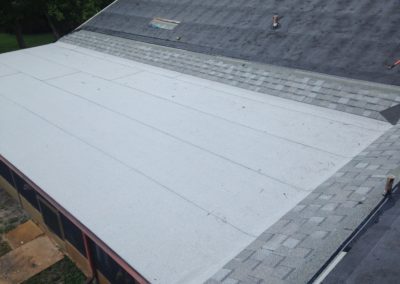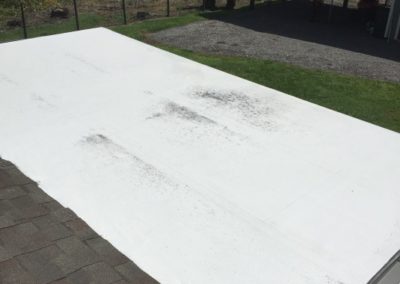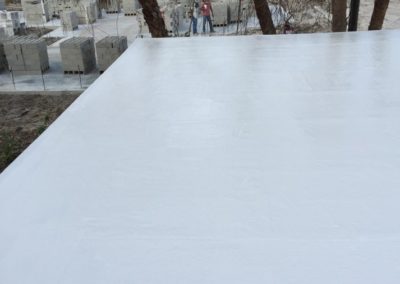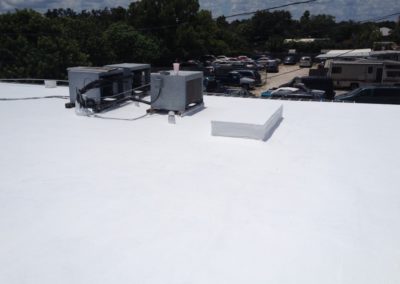7 Essential Tips for Hiring A Flat Roofer
Top 7 Essential Tips for Hiring the Best Flat Roof Roofer: Save Time and Money! When it comes to roofing, hiring the right flat roof roofer can save you not just time but a significant amount of money too. With so many options available, navigating the sea of contractors can feel overwhelming. However, understanding the essentials of hiring a professional can simplify the process and ensure you make a smart investment. In this article, we’ll unveil the top seven tips that will help you identify a qualified flat roof roofer and avoid common pitfalls that could cost you down the line.
From checking credentials to assessing past work, we’ll provide you with the tools needed to choose a reliable contractor who can deliver quality results. Get ready to turn your roofing project into a seamless experience, making informed decisions that set your home up for long-lasting protection. Let’s dive into the essential tips that will lead you to your perfect flat roof roofer!
Understanding Flat Roofing: An Overview
Flat roofing is a popular choice for many commercial buildings and modern residential properties due to its sleek design, efficient use of space, and cost-effectiveness. Unlike traditional pitched roofs, flat roofs have a minimal slope, usually less than 10 degrees, which provides a wide surface area that can be utilized in various ways, such as for rooftop gardens, patios, or HVAC systems. Despite its advantages, flat roofing requires specialized knowledge and techniques for installation and maintenance, as its unique structure can lead to specific challenges such as water pooling and drainage issues.
One of the primary benefits of flat roofing is its affordability. The materials and labor costs associated with flat roof installation are generally lower compared to pitched roofs. Additionally, flat roofs provide easy access for maintenance and repairs, which can further reduce long-term costs. However, the initial cost should not be the sole consideration when choosing a flat roof; the quality of materials and workmanship are critical factors that determine the roof’s longevity and performance.
Flat roofs are typically constructed using materials such as EPDM (ethylene propylene diene monomer), TPO (thermoplastic polyolefin), PVC (polyvinyl chloride), or bitumen. Each material has its unique properties, benefits, and drawbacks, making it vital to select the appropriate type based on the specific needs of the building and local climate conditions. Understanding the basics of flat roofing materials and construction methods is the first step in ensuring that your roofing project is completed successfully.
Why Hiring the Right Roofer Matters
Choosing 7 Essential Tips for Hiring A Flat Roofer can significantly impact the overall quality, durability, and cost-effectiveness of your roofing project. A qualified and experienced roofer will ensure that the installation is done correctly, reducing the risk of future issues such as leaks, structural damage, or premature deterioration. Hiring the right professional can save you time and money by preventing costly repairs and replacements down the line.
An expert flat roof roofer will have a thorough understanding of the latest industry standards, techniques, and materials, allowing them to provide informed recommendations tailored to your specific needs. They will be able to identify potential problems before they become major issues and offer solutions that enhance the roof’s performance and longevity. This proactive approach can lead to better overall outcomes and peace of mind for property owners.
Moreover, the right roofer will prioritize safety and adhere to all relevant building codes and regulations. Proper installation and maintenance of flat roofs involve numerous safety considerations, from working at heights to handling potentially hazardous materials. A professional roofer will have the necessary training and equipment to perform the job safely and effectively, minimizing risks and ensuring the safety of both the workers and the property occupants.
Essential Qualifications to Look For
When hiring a flat roof roofer, it is crucial to verify their qualifications to ensure they possess the necessary skills and expertise to deliver high-quality work. One of the most important qualifications to look for is proper licensing and certification. A licensed roofer has met specific requirements set by local authorities, demonstrating their competence and adherence to industry standards. Certification from reputable organizations, such as the National Roofing Contractors Association (NRCA), further validates their expertise and commitment to ongoing professional development.
Experience is another critical factor to consider. A roofer with extensive experience in flat roofing projects will have a proven track record of success and the ability to handle various challenges that may arise during installation or repair. Look for a contractor who has been in the business for several years and has completed similar projects to yours. Experience not only ensures that the roofer is familiar with the best practices but also indicates their reliability and stability in the industry.
Additionally, it is essential to check for insurance coverage. A reputable roofer should have both liability insurance and workers’ compensation coverage to protect you from potential liabilities in case of accidents or damages during the project. Liability insurance covers any property damage caused by the roofer’s work, while workers’ compensation provides protection for workers injured on the job. Asking for proof of insurance and verifying its validity can safeguard you from unforeseen costs and legal issues.
7 Essential Tips for Hiring A Flat Roofer Questions
Asking the right questions during the hiring process can help you gauge a roofer’s competence, reliability, and suitability for your project. Start by inquiring about their experience with flat roofing. Ask how long they have been working in the industry and how many similar projects they have completed. This will give you an idea of their expertise and familiarity with flat roofing specifics.
Next, ask about their approach to project management and communication. Effective communication is vital for ensuring that the project runs smoothly and any issues are promptly addressed. Inquire about how they plan to keep you informed throughout the project, including updates on progress, any unexpected challenges, and solutions. Clear communication channels can prevent misunderstandings and ensure that your expectations are met.
Another important question to ask is about their warranty and guarantee policies. A reliable roofer should offer warranties on both materials and workmanship. Ask for details on the duration and coverage of these warranties, as well as what steps to take if a problem arises. Understanding the warranty terms can provide reassurance that the roofer stands behind their work and is committed to quality.
Checking References and Reviews
One of the most effective ways to assess a roofer’s reliability and quality of work is by checking references and reviews from previous clients. Start by asking the roofer for a list of references. Contact these references and inquire about their experiences with the roofer, including the quality of work, adherence to timelines, communication, and any issues encountered. This firsthand feedback can provide valuable insights into what you can expect.
Online reviews are another useful resource for evaluating potential roofers. Look for reviews on platforms such as Google, Yelp, and the Better Business Bureau (BBB). Pay attention to both positive and negative reviews, noting any recurring themes or concerns. Reviews can give you a broader perspective on the roofer’s reputation and customer satisfaction.
Additionally, check if the roofer has any professional affiliations or memberships with industry organizations. Memberships in organizations like the NRCA or local trade associations can indicate a commitment to high standards and ongoing professional development. These affiliations often require adherence to ethical practices and quality standards, further validating the roofer’s credibility.
Comparing Quotes: What to Consider
Obtaining multiple quotes from different roofers is an essential step in the hiring process. However, it’s important to know what to look for when comparing these quotes. Start by ensuring that each quote is comprehensive and itemized, detailing the costs for materials, labor, permits, and any additional services. This transparency allows you to understand what you are paying for and identify any discrepancies between quotes.
Price is an important factor, but it should not be the sole consideration. Evaluate the quality of materials proposed by each roofer. Higher-quality materials may come with a higher upfront cost but can offer better durability and performance, potentially saving you money in the long run. Compare the warranties and guarantees offered by each contractor, as these can provide additional value and protection.
Moreover, assess the timeline and project management approach outlined in each quote. A detailed timeline can help you understand the expected duration of the project and ensure that the roofer can complete the work within your desired timeframe. Consider the roofer’s proposed methods for handling unexpected issues or changes, as flexibility and problem-solving skills are crucial for a successful roofing project.
Understanding Warranties and Guarantees
Warranties and guarantees are critical components of any roofing project, offering protection and peace of mind for property owners. When hiring a flat roof roofer, it’s essential to understand the types of warranties available and what they cover. Typically, warranties can be divided into two categories: material warranties and workmanship warranties.
Material warranties are provided by the manufacturers of the roofing materials and cover defects or failures in the products used. These warranties can vary in duration, often ranging from 10 to 30 years, depending on the material. Ensure that the roofer uses materials with strong warranties, as this indicates confidence in their durability and performance.
Workmanship warranties, on the other hand, are offered by the roofer and cover issues related to the installation process. These warranties usually range from 1 to 5 years, depending on the roofer’s policies. A workmanship warranty ensures that any problems resulting from improper installation will be addressed by the roofer at no additional cost. Understanding the terms and conditions of these warranties can help you make an informed decision and protect your investment.
Red Flags to Watch Out For
Knowing the red flags to watch out for when hiring a flat roof roofer can help you avoid potential pitfalls and ensure you choose a reliable contractor. One major red flag is the lack of proper licensing and insurance. A roofer who cannot provide proof of licensing and insurance may not be qualified or may be attempting to cut corners, putting you at risk for subpar work and liability issues.
Another warning sign is a roofer who provides vague or incomplete quotes. A trustworthy roofer should offer detailed, itemized quotes that clearly outline the costs and scope of the project. Vague quotes can lead to unexpected charges and misunderstandings, so ensure that you receive a comprehensive estimate before proceeding.
Additionally, be cautious of roofers who pressure you into making quick decisions or require large upfront payments. Reputable contractors will give you time to consider your options and provide reasonable payment terms. High-pressure tactics and significant upfront payments can be indicative of unscrupulous practices or financial instability.
The Importance of Local Roofing Expertise
Hiring a local flat roof roofer can offer several advantages that contribute to the success of your roofing project. Local roofers have a better understanding of the specific climate conditions, building codes, and regulations in your area. This knowledge allows them to recommend the most suitable materials and techniques for your flat roof, ensuring optimal performance and compliance with local standards.
Local expertise also means faster response times and more accessible service. Should any issues arise during or after the project, a local roofer can quickly address them, minimizing disruptions and ensuring timely solutions. Additionally, local roofers often have established relationships with suppliers and subcontractors in the area, which can lead to better pricing and availability of materials.
Supporting local businesses also contributes to the community’s economic growth and sustainability. By hiring a local roofer, you are investing in the local economy and fostering a sense of community. This can lead to more personalized service and a greater commitment to quality, as local roofers often take pride in their reputation and the long-term relationships they build with clients.
Conclusion: 7 Essential Tips for Hiring A Flat Roofer
Making an informed decision when hiring a flat roof roofer is crucial for the success and longevity of your roofing project. By understanding the essentials of flat roofing, verifying qualifications, asking the right questions, checking references and reviews, comparing quotes, understanding warranties, recognizing red flags, and valuing local expertise, you can confidently choose a contractor who meets your needs and expectations.
The right roofer will not only provide high-quality workmanship and materials but also ensure that the project is completed safely, on time, and within budget. Taking the time to thoroughly vet potential roofers and make informed decisions can save you time and money while protecting your property and investment.
Remember, a well-installed flat roof can offer numerous benefits, from enhanced aesthetics and functionality to long-lasting protection and energy efficiency. By following these essential tips, you can turn your roofing project into a seamless experience and enjoy the peace of mind that comes with knowing you’ve made the best choice for your home or business.
Very Important
Are they members of chambers and BBB
Contact Us at 321-914-3360 or fill out our contact form.

